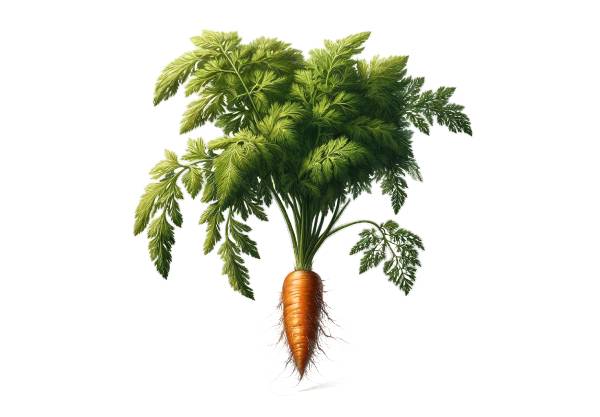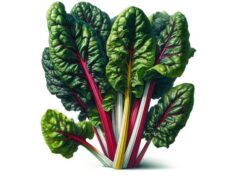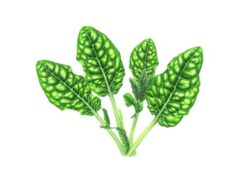
Introduction to Carrots
Carrots, scientifically known as Daucus carota, are a long-cultivated root vegetable. Carrots, which originated in Persia (modern-day Iran and Afghanistan), were grown for their aromatic leaves and seeds rather than their roots. The modern carrot, distinguished by its vibrant orange color, was developed in the Netherlands during the 17th century through selective breeding. Carrots are now a global food staple, celebrated for their versatility, flavor, and health benefits.
Carrots are well-known for their high beta-carotene content, a precursor to vitamin A, which is necessary for good vision, a strong immune system, and healthy skin. Their crisp texture and sweet flavor make them a popular ingredient in a wide range of dishes, including salads, soups, snacks, and desserts. Aside from their culinary uses, carrots are nutritional powerhouses, containing a variety of vitamins, minerals, and antioxidants that promote overall health.
Carrots are well-known for their role in maintaining overall health, which includes eye health. Understanding the nutritional benefits of carrots is especially important given the rising prevalence of vision-related issues like age-related macular degeneration (AMD) and cataracts. This article examines carrots’ nutritional profile and how their specific nutrients contribute to improving and maintaining eye health.
Nutritional Profile of Carrot
Carrots are not only delicious, but they also contain a variety of nutrients that are essential for overall health and especially beneficial to eye health. A typical serving of raw carrots (roughly 100 grams) provides:
- Beta-Carotene (Vitamin A): Carrots have a high beta-carotene content (8285 µg per 100 grams). The body converts beta-carotene into vitamin A, which is required for good vision, particularly in low-light conditions. It also helps to avoid night blindness and xerophthalmia.
- Vitamin K: Carrots contain 13.2 µg of vitamin K per serving, which is beneficial for blood clotting and bone health. Vitamin K also helps to maintain blood vessel integrity, which benefits eye health.
- Vitamin C: Carrots contain approximately 5.9 mg of vitamin C per 100 grams, which acts as a powerful antioxidant, protecting the eyes from oxidative stress and promoting the health of ocular blood vessels.
- Fiber: Carrots contain 2.8 grams of dietary fiber per serving, which promotes digestive health and helps keep blood sugar levels stable, lowering the risk of diabetic retinopathy.
- Lutein and Zeaxanthin: Carrots contain significant amounts of these carotenoids, which are known to protect the eyes from harmful high-energy light waves such as ultraviolet rays. They also help to reduce the risk of chronic eye diseases like AMD and cataracts.
- Potassium: Carrots have approximately 320 mg of potassium per 100 grams. This mineral is essential for maintaining proper electrolyte balance and blood pressure, which can benefit eye health by ensuring adequate blood flow to the eyes.
- Antioxidants: In addition to beta-carotene, carrots contain alpha-carotene and lutein, which protect the eyes from free radicals and oxidative stress.
Carrots are an excellent food for eye health because of the combination of nutrients they contain. High levels of beta-carotene and other antioxidants help to protect eye tissues, while lutein and zeaxanthin directly contribute to the retina’s structural integrity. Furthermore, the presence of vitamins K and C improves overall eye health by promoting vascular health and providing antioxidant protection.
Vision Benefits of Carrots
Carrots are frequently hailed as the ultimate eye-healthy food, and this is well-deserved given their high nutrient content. Here’s a detailed look at how the nutrients in carrots contribute to different aspects of eye health:
Protection against night blindness and xerophthalmia
Vitamin A deficiency is a major cause of night blindness and xerophthalmia, which is characterized by dryness of the conjunctiva and cornea. Carrots have a high beta-carotene content, which the body converts into vitamin A. This vitamin is required for the production of rhodopsin, a pigment in the retina that allows the eyes to adapt to low-light conditions. Regular carrot consumption ensures that the body has enough beta-carotene to maintain adequate vitamin A levels, preventing night blindness and keeping the eyes healthy and lubricated.
Reducing the risk of age-related macular degeneration (AMD)
Age-related macular degeneration is a common cause of vision loss in elderly people. Carrots contain both lutein and zeaxanthin, which are essential for protecting the macula, the central part of the retina responsible for detailed vision. These carotenoids function as a natural filter, absorbing harmful blue light while protecting photoreceptor cells from oxidative damage. According to studies, consuming more lutein and zeaxanthin in your diet lowers your risk of developing AMD. By including carrots in your diet, you can increase your intake of these protective compounds and improve macular health.
Prevention of Cataract
Cataracts, which cause the lens of the eye to become cloudy, are the leading cause of blindness globally. Oxidative damage to lens proteins contributes significantly to cataract formation. Carrots contain antioxidants, specifically beta-carotene, vitamin C, and lutein, which help neutralize free radicals and protect the lens from oxidative stress. Vitamin C, in particular, is known to support collagen synthesis, which helps to maintain the lens’s structural integrity. Regular carrot consumption can thus help to reduce the risk of cataracts by providing important antioxidants that protect the lens.
Support for Overall Retinal Health
The retina is a light-sensitive layer in the back of the eye that plays an important role in vision. Carrots, which contain high levels of beta-carotene, lutein, and zeaxanthin, promote retinal health by shielding the retina from oxidative stress and bright light. Beta-carotene, once converted to vitamin A, is essential for photoreceptor cell health. The retina contains a high concentration of lutein and zeaxanthin, which help filter harmful light and protect against UV ray damage. Maintaining a carrot-rich diet will ensure that your retina receives the nutrients it requires to function properly and remain healthy.
lowering the risk of diabetic retinopathy
Diabetic retinopathy is a diabetes complication that causes vision loss. Maintaining stable blood sugar levels is critical to avoiding this condition. Carrots contain dietary fiber, which helps regulate blood sugar levels by slowing glucose absorption in the intestine. Carrots’ antioxidants, such as vitamin C and beta-carotene, also help to reduce inflammation and oxidative stress, both of which contribute to the development of diabetic retinopathy. Carrots in a balanced diet can improve overall retinal health in diabetics and lower the risk of vision loss.
Improved Eye Hydration and Reduced Dry Eye Syndrome
Dry eye syndrome is a common condition in which the eyes produce insufficient tears or the tears evaporate too quickly. Vitamin A, which comes from beta-carotene in carrots, is essential for maintaining healthy mucous membranes and producing tear fluid. This keeps the eyes lubricated and alleviates the symptoms of dry eye syndrome. Carrots provide adequate vitamin A intake, which helps to support tear production and eye hydration.
Protection from Oxidative Stress
The eyes are especially vulnerable to oxidative stress because of their constant exposure to light and high metabolic activity. Carrots contain antioxidants such as beta-carotene, lutein, and vitamin C, which help neutralize free radicals and protect the eyes from oxidative damage. These antioxidants protect the eye’s delicate tissues, such as the cornea, lens, and retina. Carrots can help boost the body’s antioxidant defenses and protect the eyes from the negative effects of oxidative stress.
Improving Vascular Health and Blood Flow to the Eyes
A healthy blood circulation is essential for delivering oxygen and nutrients to the eyes. Carrots contain potassium, which helps regulate blood pressure and keep electrolytes balanced. Carrots also contain vitamin K, which promotes healthy blood clotting and prevents vascular calcification. These factors ensure that the eyes receive adequate blood flow, which promotes overall health and function. Including carrots in your diet can help to maintain healthy blood vessels and ensure proper nutrient delivery to the eyes.
Preventing Glaucoma
Glaucoma is a group of eye conditions that cause damage to the optic nerve, usually as a result of high intraocular pressure. Carrots contain antioxidants such as vitamin C and beta-carotene, which can help reduce oxidative stress and inflammation, two risk factors for glaucoma. Furthermore, the dietary fiber in carrots helps keep blood sugar levels stable, lowering the risk of diabetes, which is a known risk factor for glaucoma. Carrots can help improve overall eye health and lower the risk of developing glaucoma.
Prepare and Enjoy Carrots
Consume one to two medium-sized carrots per day for the best eye health benefits. This intake contains a high concentration of beta-carotene and other essential nutrients required for good vision and overall eye health.
Easy and Delicious Recipes
1. Carrot and Ginger Soup – Ingredients: – 6 large peeled and chopped carrots – 1 chopped onion – 2 tablespoons olive oil – 2 minced garlic cloves – 1 tablespoon grated fresh ginger – 4 cups vegetable broth – Salt and pepper to taste – Instructions:
- Heat the olive oil in a large pot over medium heat. Add the onion and garlic and cook until soft.
- Cook for an additional 5 minutes after adding the carrots and ginger.
- Pour in the vegetable broth and heat to a boil. Reduce the heat and simmer for 20 minutes, or until the carrots are tender.
- Use an immersion blender to smooth out the soup. Season with salt and pepper to taste.
2. Honey-Glazed Carrots – Ingredients: 4 cups baby carrots, 2 tablespoons butter, 2 tablespoons honey, and 1 tablespoon lemon juice.
- Add salt and pepper to taste. – Instructions:
- Steam or boil the carrots for 10 minutes, or until tender.
- In a large skillet, melt the butter over medium heat. Stir in the honey and lemon juice.
- Toss the cooked carrots in the skillet until coated with the glaze. Cook for an additional 5 minutes, stirring occasionally.
- Sprinkle with salt and pepper before serving.
Tips for Choosing, Storing, and Preparing Carrot
Selecting: Choose carrots that are firm, smooth, and bright in color. Avoid carrots that are limp, cracked, or with dark spots.
Storage: Refrigerate carrots in a plastic bag or container for up to two weeks. If the green tops remain attached, they can draw moisture away from the roots.
Preparing: Rinse carrots in cold water before using. Peel them if desired, but the skin is edible and contains additional nutrients. Carrots can be eaten raw, steamed, roasted, or mixed into soups, stews, and salads.
Trusted Resources
Books
- “Nutrition and Eye Health” by Adrian R. Koh
- This book provides comprehensive insights into the relationship between diet and eye health, highlighting the importance of nutrients like beta-carotene found in carrots.
- “The Macular Degeneration Handbook: Natural Ways to Prevent & Treat Macular Degeneration” by Chet Cunningham
- A guide to preventing and managing macular degeneration through diet and lifestyle changes, emphasizing foods like carrots.
- “Eat Right for Your Sight: Simple, Tasty Recipes that Help Reduce the Risk of Vision Loss from Macular Degeneration” by Jennifer Trainer Thompson and Johanna M. Seddon
- This book offers recipes and dietary tips to support eye health, including the use of nutrient-rich foods like carrots.
Reliable Sources and Studies
- National Institutes of Health (NIH) – Office of Dietary Supplements
- Provides detailed information on the nutrients found in carrots and their health benefits.
- NIH Office of Dietary Supplements
- American Optometric Association – Nutrition and the Eye
- Discusses the importance of nutrition for eye health and the role of various vitamins and minerals.
- American Optometric Association
- Age-Related Eye Disease Study (AREDS)
- A significant study that investigates the effects of high-dose vitamins and minerals on age-related macular degeneration and cataracts.
- AREDS Study
- Harvard T.H. Chan School of Public Health – The Nutrition Source
- Provides evidence-based information on the nutritional benefits of carrots and their role in promoting eye health.
- Harvard Nutrition Source
- American Academy of Ophthalmology – Eye Health
- Offers resources and articles on how diet impacts eye health, including the benefits of carotenoids from carrots.
- American Academy of Ophthalmology
- Journal of the American Medical Association (JAMA) Ophthalmology
- Publishes peer-reviewed articles on the latest research in eye health and nutrition.
- JAMA Ophthalmology










